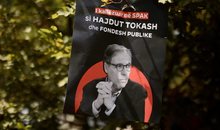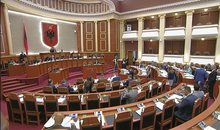
Swiss newspaper: Rama-Meloni Pact a frozen investment! Where is the migrant agreement failing?
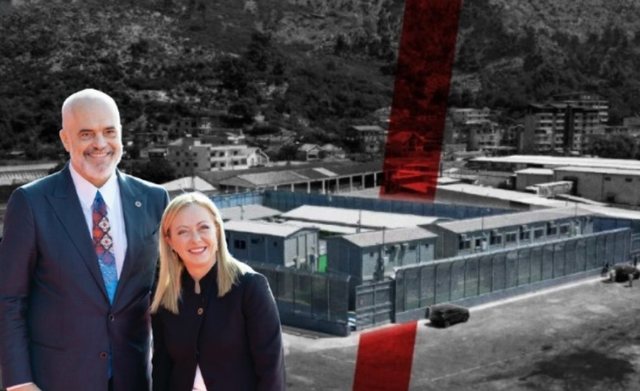
In the quiet interior of Albania, at the foot of a rugged mountain, stands the "Gjaderi Cage", as Italian newspapers call the deportation center.
High wire mesh fences surround buildings that resemble stacked shipping containers, set on bare concrete slabs. The Italian government built this "cage" to deport thousands of migrants in expedited asylum procedures.
Together with its sister centre in Shëngjin, just a few kilometres away on the coast, 36,000 applications can be processed each year. The emphasis is on "can", as so far, not a single asylum application has been processed in Gjader, despite the huge amount of money spent.
To be precise: more than double the amount originally planned. This was revealed in a report by the Dutch investigative platform "Follow the Money" this week.
According to the report, Rome paid 74.2 million euros to build the facility, which equates to 72,461 euros per bed.
In comparison, the construction of a migration center in the Sicilian city of Modica, which was completed a little while ago, cost just 6,400 euros per bed - one-eleventh of this amount, according to the publication.
Meloni's policies are now widespread in the EU
So far, this discovery has done no harm. Quite the opposite. At Thursday's EU summit, the new German Chancellor, Friedrich Merz, took part for the first time in a round table on migration called by Meloni. Meloni has long been organizing these meetings ahead of official EU summits, so that heads of state and government can consult specifically on combating irregular migration and coordinate their positions.
While his predecessor, Olaf Scholz, stayed away from these meetings, Merz's participation shows that Meloni's anti-immigration stances and methods have entered the EU mainstream. The so-called "Albania Model" is her flagship project because it shows that Meloni is willing to break new ground - even though the deportation centers are not working as planned so far, and it is doubtful whether they ever will.
The centers in the Albanian towns of Shëngjin and Gjadra were originally intended to allow some of the migrants arriving in Italy by boat to undergo an expedited asylum process. However, legal problems led Italian judges to block the government from detaining migrants in the centers. After failing three times to detain asylum seekers in Albania, the government changed course: The centers became places where rejected migrants are registered and prepared for deportation.
Por projekti ka një tërheqje të konsiderueshme. Në një kohë kur gjithnjë e më shumë qeveri në BE janë zhvendosur djathtas dhe kanë miratuar qëndrime anti-imigracion, nevoja për të gjetur strategji të reja është e madhe. Dhe meqenëse asnjë vend i BE-së nuk ka arritur ende të hapë qendra azili në një vend të tretë, pati një interes të konsiderueshëm për iniciativën e Melonit: 15 vende të BE-së më pas i bënë thirrje Komisionit të BE-së që të miratonte modelin e saj si një model për të gjithë BE-në.
Meloni e shfrytëzoi këtë me zgjuarsi. Gjëja interesante në lidhje me raportin "Ndiqni Paratë" është se ai justifikon dyfishimin e kostove për ndërtimin e qendrave duke përmendur nxitimin e Romës për t'i hapur ato. Me sa duket, kjo ndodhi sepse qeveria ishte në dijeni të fuqisë simbolike të projektit. Në urdhrin zyrtar të punës për inxhinierët e porositur, Ministria e Mbrojtjes theksoi "domosdoshmërinë dhe urgjencën e jashtëzakonshme" të projektit si një përgjigje ndaj një emergjence migrimi.
Në fakt, qeveria e Melonit ishte nën një presion të jashtëzakonshëm: Kur ajo prezantoi "Modelin e Shqipërisë" në fillim të nëntorit 2023, Meloni kishte qenë në pushtet prej një viti. Ajo fitoi zgjedhjet pjesërisht sepse u paraqit si një kundërshtare e ashpër e migracionit dhe premtoi të vendoste një "bllokadë anijesh" kundër anijeve me migrantë.
Realiteti ishte ndryshe: Në vitin 2023, 157,651 njerëz mbërritën në Itali nëpërmjet Mesdheut. Viti i parë i plotë i Melonit në pushtet ishte gjithashtu viti në të cilin më shumë emigrantë zbarkuan në brigjet e Italisë sesa në kulmin e krizës së refugjatëve në vitin 2016. Melonit iu desh të tregonte se po ndërmerrte veprime. Në të njëjtën kohë, ajo e gjeti veten në një pozicion të vështirë, pasi ishte e re në këtë detyrë dhe nuk mund të mbështetej ende në aleancat politike ekzistuese brenda BE-së.
60 përqind më pak migrantë
Pjesë e strategjisë së saj ishte bashkëpunimi i ngushtë me Presidenten e Komisionit të BE-së, Ursula von der Leyen. Të dy politikanët u morën vesh mirë që nga fillimi, dhe Meloni e shfrytëzoi këtë marrëdhënie në çështjen e migracionit. Qeveria e saj përgatiti marrëveshje për migracionin me Tunizinë dhe Egjiptin, të cilat von der Leyen më pas i nënshkroi në emër të BE-së - me Melonin në krah të saj. Marrëveshjet u ofrojnë ndihmë financiare qeverive nëse ato sigurojnë brigjet e tyre kundër migrantëve që shkojnë drejt BE-së.
International organizations have strongly criticized these agreements, believing that they constitute EU complicity in serious human rights violations against migrants in North African countries. The EU’s cooperation with some authoritarian regimes, which makes the EU vulnerable to blackmail, has also been criticized. But for Meloni, the plan worked, as the number of migrants arriving via the Mediterranean has fallen sharply since then. In 2024, 66,617 people arrived, about 60 percent fewer than the year before. And so far, there has been only a slight increase in 2025.
By preparing these agreements and the “Albania Model,” Meloni has “become the most important player in EU migration issues,” confirms Luca Barana of the Institute of International Relations in Rome, where he researches migration and the EU. The investment in the “Albania Model” has certainly paid off politically for Meloni so far. The project has given her visibility and positioned her as a determined player in EU migration policy. In an EU that is shifting to the right on migration policy, the model served as a strategic signal for her claim to leadership, despite the doubling of costs.
/Translated from the Swiss newspaper Neue Zürcher Zeitung
Latest news


Trump says he's ready to raise tariffs to 70% on some countries
2025-07-04 22:35:52
Tre shenjat e zodiakut që do ‘pasurohen’ në Korrik
2025-07-04 22:05:09
Gaza War: Hamas Accepts US Proposal for 60-Day Ceasefire
2025-07-04 21:50:10
Autocracy in Albania, Fuga: Governance has gotten out of control
2025-07-04 21:40:51
Meta: Agriculture on credit, the new fraud!
2025-07-04 21:26:39




Vote recount in Durrës ends without changes
2025-07-04 20:12:54
Gas station explodes in Rome, 25 injured (VIDEO)
2025-07-04 20:00:20

These afternoon habits often sabotage weight loss
2025-07-04 19:39:28
Former Arsenal player Thomas Partey accused of rape
2025-07-04 19:24:21
Shepherd disappears without a trace in Delvina
2025-07-04 19:14:31

Bardho gave Zegjine's mandate/Braho: Unfair! It violates the electoral system
2025-07-04 19:01:08


Rapid developments in the Sultanates!
2025-07-04 18:00:06



Italy tightens rules for skateboard traffic
2025-07-04 17:20:18

Unusual for the time, dense fog covers the coast of Vlora
2025-07-04 16:48:01


Accident on the Shkodra-Lezhë axis, one dead and 3 injured
2025-07-04 16:14:19
Albania with fewer requests for asylum and Albanian citizenship in 2024
2025-07-04 16:06:57

Albania last for quality of life, DP: Technical government is the solution!
2025-07-04 15:42:30
Nico Williams says "No" to Barcelona, signs with Athletic Club until 2035
2025-07-04 15:33:35
Fires in the country, four fires are still active, what is the situation?
2025-07-04 15:24:20

Summer brings big changes for these 4 zodiac signs
2025-07-04 15:00:04
Osmani: MPs need to agree to a secret ballot for the Speaker of Parliament
2025-07-04 14:51:09
Serious accident on the Peqin-Elbasan axis, two injured
2025-07-04 14:37:56

GJKKO leaves in force the security measure for the head of the KPP
2025-07-04 13:58:17
Who will replace Ilir Meta and take over the leadership of the PL?
2025-07-04 13:50:36
Berisha: Dismissal of directors in Vlora, another act of 'scapegoats'
2025-07-04 13:41:46




Librazhd/ In a serious psychological state, the young man consumes pesticides
2025-07-04 13:05:07


Weapons trafficked from Kosovo to Albania, two arrested, 8 pistols seized
2025-07-04 12:33:28
Konsumimi i tepërt i çokollatës, ja cilat janë dëmet që shkakton në organizëm
2025-07-04 12:23:35

Fires in the country, 21 fires in the last 24 hours, 4 still active
2025-07-04 12:00:19
WB calls for debt transparency: Albania to publish details of every loan
2025-07-04 11:50:05
Changes in the State Police, new names expected to lead 5 police stations
2025-07-04 11:40:06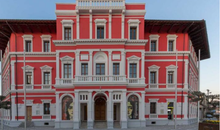
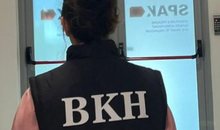
The race for the head of the BKH, the third phase on July 11
2025-07-04 11:20:23

Toxic phrases that show your relationship is in trouble
2025-07-04 11:00:10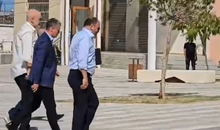

2 brothers arrested in Roskovec, cultivating narcotic plants
2025-07-04 10:38:08
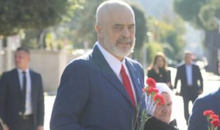
Celebrating his 61st birthday today, Rama is surprised at the pink headquarters
2025-07-04 10:21:46
Suspended from duty 4 days ago, Jonaid Myzyri appears before the Criminal Court
2025-07-04 10:16:27
Heat wave/ 5 deaths in Italy from high temperatures
2025-07-04 10:07:55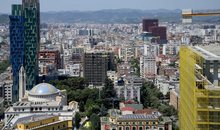
Economy slows, telecommunications joins agriculture and industry in recession
2025-07-04 09:58:13

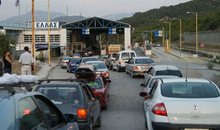
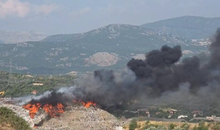
Fire continues at Elbasan incinerator, toxic smoke endangers citizens' health
2025-07-04 09:19:06
The USA celebrates its 249th anniversary of Independence
2025-07-04 09:09:22
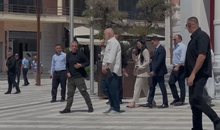
After Rama's ultimatum, all directors of the Vlora municipality resign
2025-07-04 08:46:30
Russia, the first country in the world to recognize the Taliban government
2025-07-04 08:37:20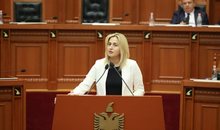
10 facts about the 10th legislature!
2025-07-04 08:21:35
Foreign exchange/ How much foreign currencies are bought and sold today
2025-07-04 08:01:50

Weather forecast for today
2025-07-04 07:36:43
"Don't be afraid", here's what the stars have predicted for each sign
2025-07-04 07:21:48
Morning Post/ In 2 lines: What mattered yesterday in Albania
2025-07-04 07:03:17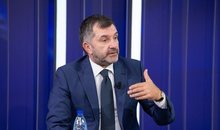
Bushati: Zegjineja, a book piloted by Rama
2025-07-03 22:57:30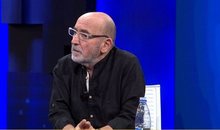
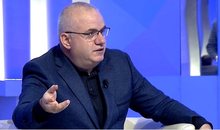
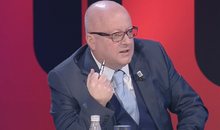


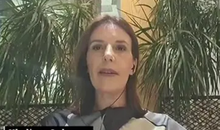

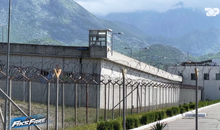

Greece imposes fee to visit Santorini, how many euros tourists must pay
2025-07-03 20:50:37
Don't make fun of the highlanders, Elisa!
2025-07-03 20:43:43
Gunfire in Durres, a 30-year-old man is injured
2025-07-03 20:30:52

The recount in Fier cast doubt on the integrity of the vote
2025-07-03 20:09:03
